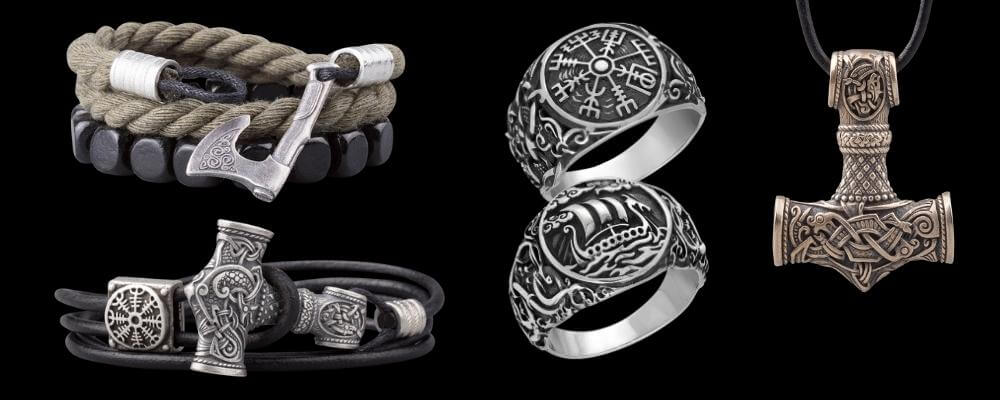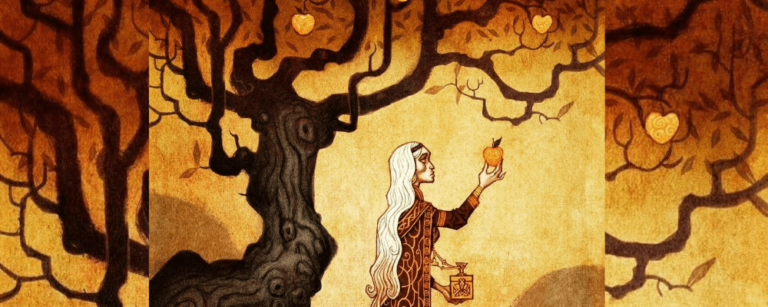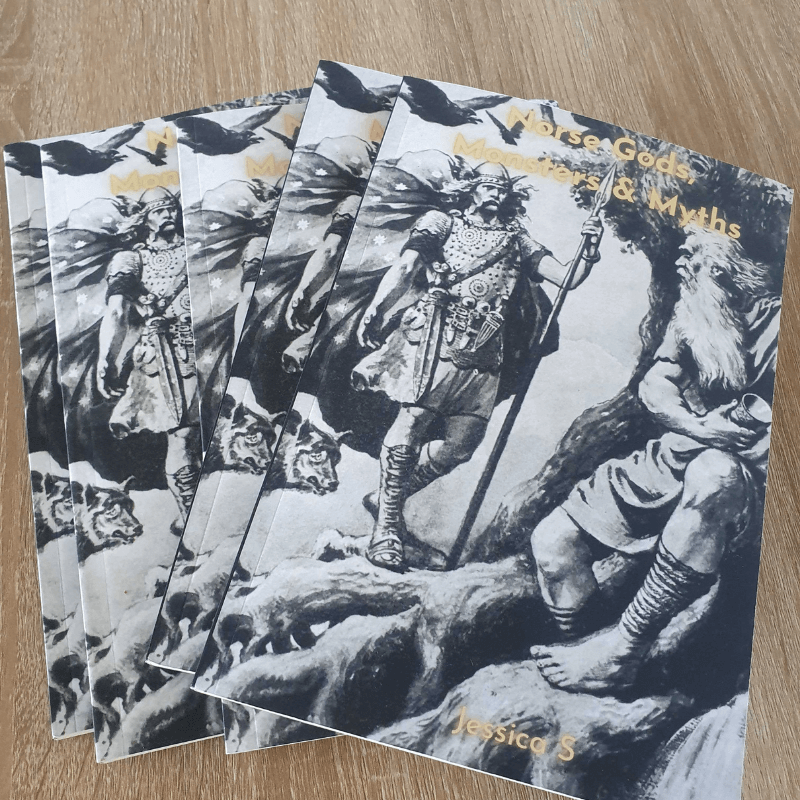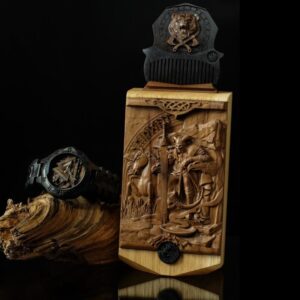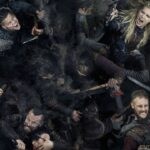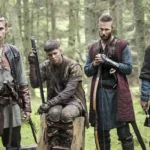Of the many gods and goddesses in the Norse pantheon that receive little popular attention, Idun is among the most fascinating.
She is interesting for two reasons. Firstly, her role and purpose suggest that the Vikings did not believe their gods to be immortal in an absolute sense.
Secondly, she clearly demonstrates that Norse beliefs don’t draw clear lines between the different types of beings – gods, giants, elves, dwarves, and spirits – but seems them all as very similar beings, though all super-human.
So, let’s take a closer look at Idun and what her stories reveal about Norse mythology and Viking beliefs.
Goddess of Youth
Idun is best characterized as the goddess of youth. Her role in Norse mythology is that as tender of the divine orchards of Asgard. There grow magical apples, which Idun harvests and keeps in a box made of ash called eski.
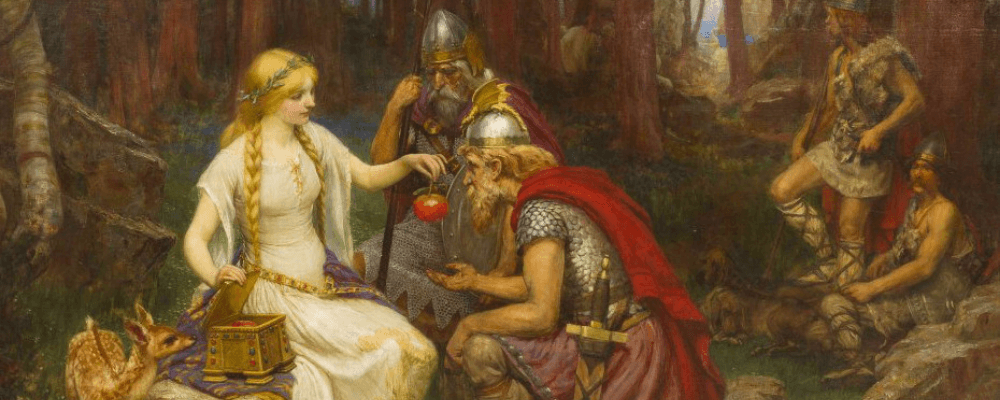
The fruits that she collects are usually called apples, but in fact, the Old Norse word for apple, epli, was often used to refer to any fruits or nuts.
But these aren’t just any apples, they have the power to bestow youth and vigor upon anyone who eats them.
And these apples seem to be the secret of the youthfulness of the gods. When they don’t eat the fruit they age, and then Idun most provide them with more apples so that they can rejuvenate themselves.
The fact that the Vikings believed that the gods needed such fruit to maintain their youth is revealing about the nature of the Norse gods, in particular as it relates to immortality.
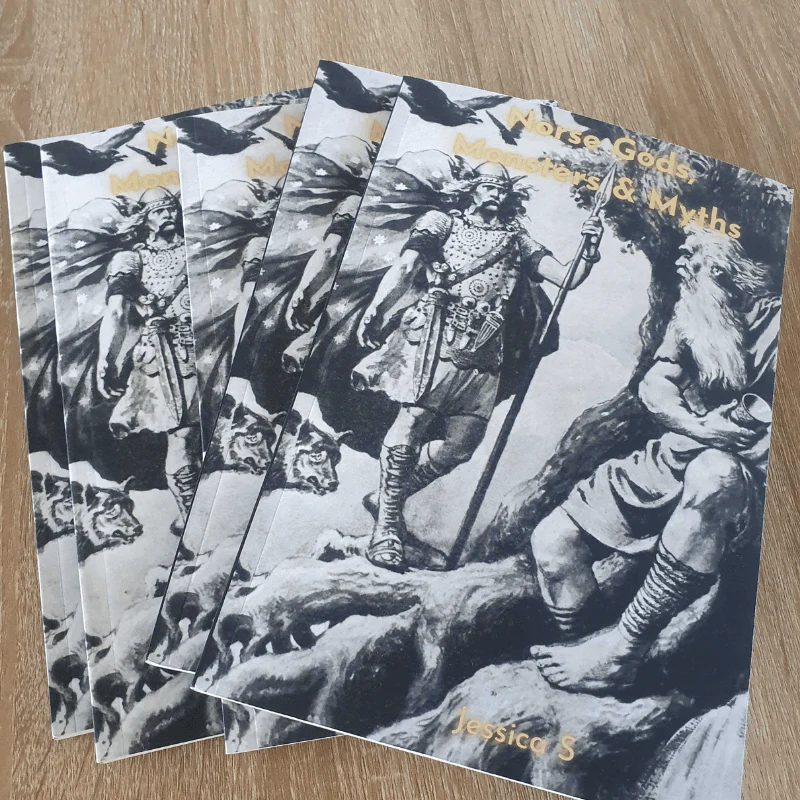
Get Your FREE e-Book
Norse Gods, Monsters & Myths
A Superhuman Being
As is true of so many of the Norse female deities, we know every little about Idun as the male authors that decided to write down the stories of the gods do not seem to have been particularly interested in female stories.
But the scraps of information that we do have about Idun are revealing about the nature of the various beings that inhabited the Norse cosmos.
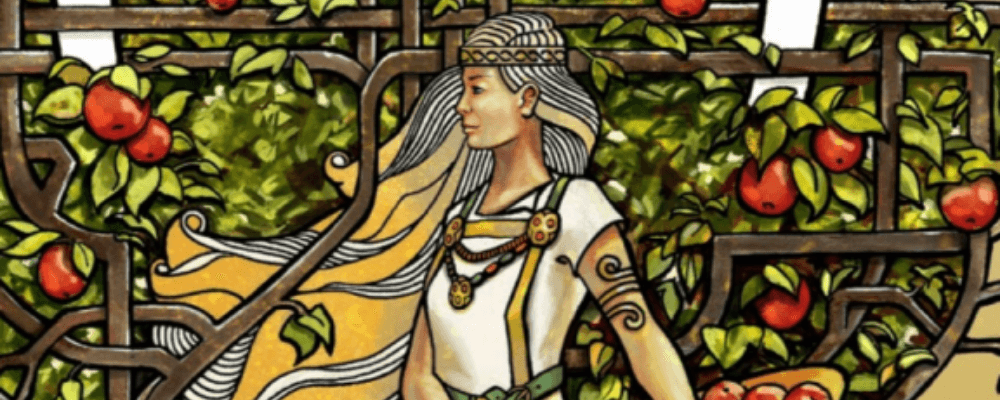
As well as containing mankind, the Vikings believed in the existence of a variety of different beings.
There are the Aesir gods, the principal deities including Thor ad Odin. There are also the Vanir gods, which are very similar to the Aesir but more associated with nature, such as Freya. Then there are the giants, who again seem very similar to the gods in terms of their power, but rather than pursuing peace and order, they like to sew chaos. The similarity between the gods and the giants is highlighted by the many cases of the two interbreeding. For example, Thor is the son of Odin with the giantess Jord.
In addition to this, there are also light elves, who seem to be superhuman beings of light, and dark elves, often called dwarves because they are characterized as living underground in darkness and being master blacksmiths.
But, while all of these beings are clearly different from human beings, it is entirely unclear how they are different from one another.
What we know about Idun reflects the blurriness of the lines between these different beings.
She lives in Asgard and clearly counts among the Aesir gods. She is one of the many deities that was present at a great feast in Asgard when Loki shows up and decides to insult everyone.
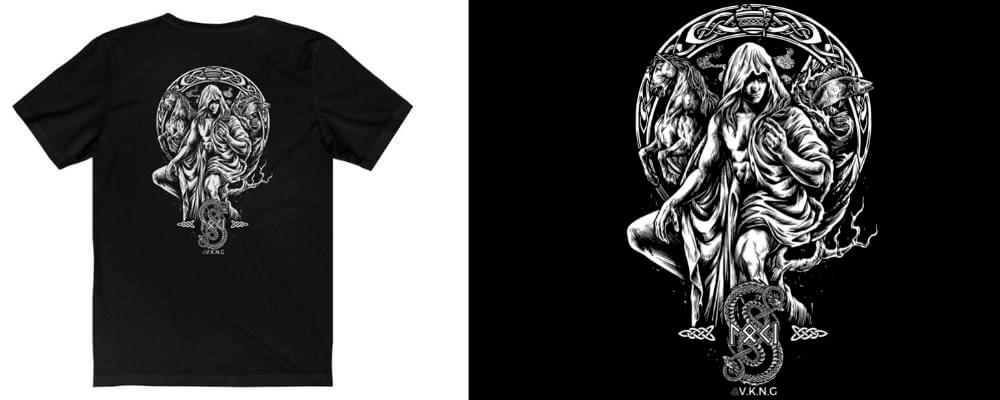
However, she is also described in one source as one of Ivaldi’s elder children. We know that the sons of Ivaldi are a group of dwarves that fashioned a variety of magical objects for the Aesir, including Odin’s spear Gungnir.
She is also described as a Dis, which is an open term for spirits, ghosts, and gods associated with fate.
In the same source, she is described as being of Alfen race, which is a term often used to refer to elves. They are often closely linked with the Aesir gods as well, with many references to Aesir of Alfar (Aesir and Elves).
But in the sagas, the Alfar are often associated with honored ancestors of men.
This brings us to Idun’s husband Bragi. He is also a being whose nature is unclear. He seems either to be the god of poetry or a deceased poet that was elevated to be the poet of Valhalla, the hall of Odin in Asgard where the souls of brave warriors are taken. This creates another link between Idun and the idea of honored ancestors.
So, while we can’t pin down the nature of Idun, she reveals much about why exactly that is so difficult.
The Kidnapping of Idun
Only one story survives about Idun, and it relates to her kidnapping. We are tantalized in the Lokesanna about another story as Loki accused Idun of being man crazy and embracing the man who killed her brother. But no further information survives about this.
The story starts with Odin, Hoenir (who helped Odin create human beings), and Loki hiking through a mountainous region of Asgard. On their way, they come across some Oxen and decide to slay on to eat. But when they try and light a fire to cook the meat, they find that they are unable to do so.
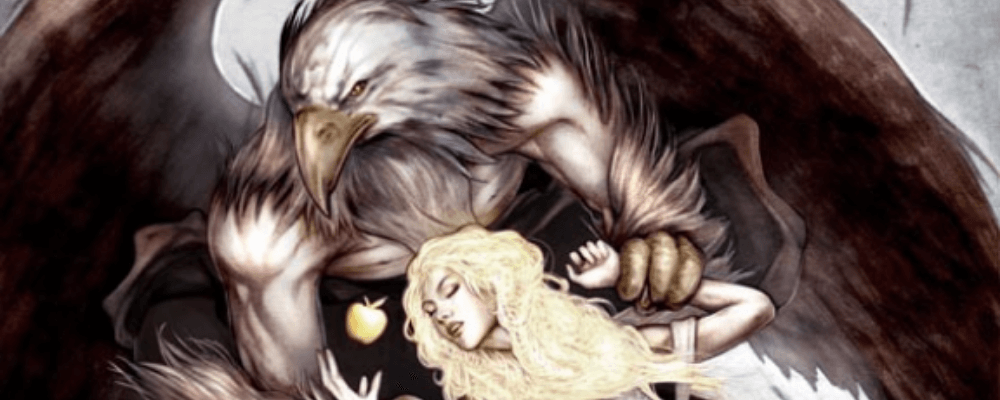
An eagle sitting far above them in a tree laughs at them and tells them that they will be unable to light the fire unless they agree to give it a fair portion of the food. Presumably, it is the eagle that is preventing them from being able to light the fire. So, the group agrees and the eagle flies down.
But it seems that they had no intention of sharing the food, as when the eagle descends Loki tries to hit it with a stick. But the eagle is too fast, and it takes the stick in its talons and flies off, with Loki still hanging on to the stick and begging to be let down.
After a time, the eagle reveals to Loki that it is in fact that giant Thjazi who, like Loki himself, is a shapeshifter. He agrees to let Loki down only in return for a favor. He wants Loki to bring him Idun and her apples of youth.
To fulfill his promise Loki lures Idun away from her orchard and into the dark forest by telling her that he has encountered amazing fruits there even more impressive than her apples. She clearly decides to take her box with her as well, either to protect her golden apples or to collect a sample of this fantastic fruit.
But once in the forest Idun is delivered to Thjazi, again in the form of an eagle. He takes her in his talons and flies away with her to his home in Jotunheim, the land of the giants.
It is unclear how much time passes before Idun is missed, but when the gods start to feel the pains of old age and do not have access to the apples to rejuvenate themselves, they start to wonder what has happened to Idun. As Loki was the last person seen with her, they question him.
Under duress, Loki reveals what happened and says that he will retrieve Idun if only the gods will lend him the use of Freya’s falcon cloak to fly there. This is an interesting addition considering that in many other stories Loki is described as a shapeshifter as well, and we have examples of him turning himself into a woman and a horse.
Nevertheless, Loki flies to Thjazi’s hall in Jotunheim where he finds Idun. He is then able to turn her into a nut so that she is small enough for him to carry back to Asgard.
But the escape is soon discovered, and Thjazi chases Loki back to Asgard in the form of an eagle.
Seeing Loki approaching, the gods create a giant fire over the walls of Asgard that reach up to the heavens. Loki, presumably aware of the plan, is able to turn at the last minute and avoid the fire. But Thjazi flies right into it. His brunt body falls to the ground, and he is killed by the Aesir gods.
Idun is restored to her normal form and is again able to provide the gods with her special apples to maintain their youth.
The Secrets of Idun
The stories that we have about Idun tell us very little about the goddess herself. This is largely a result of the nature of the sources, written by male hands and only concerned with the deeds of male deities. For similar reasons, we know very little about most of the Norse goddesses, such as Frigg, Sif, and Sigyn.
But Idun does raise significant questions about the nature of the gods within Norse beliefs. Their immortality seems to have been far from absolute, and the lines between the gods and the other supernatural beings that exist in Norse mythology seem to be very blurred. It is not always easy to distinguish between gods, giants, elves, and spirits.
What do you think about the nature of the Norse gods?
